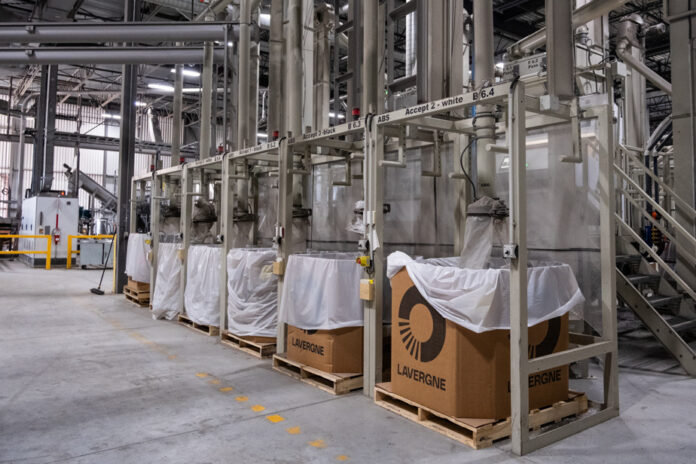The objective: to be closer to its customers and also to its sources of supply. To achieve this, the plastic recycler Lavergne has three factory projects abroad which should be operational by the end of 2024. A major challenge in terms of financing.
Although the economy may be slowing, demand for recycled plastic is increasing, at least among some buyers.
“For some of our clients, there is a slowdown, but on the other hand, we have new clients who want to work with us and current clients who are urging us to establish ourselves near them,” explains Jean- Luc Lavergne, CEO of Lavergne.
Therefore, the Anjou company is planning new factories outside the country in the medium term. The first will be in the American West. The recycler, which processes 125 million kilos of plastic annually, expects construction of its new plant to begin in early 2024. Work is expected to last five to six months.
The second factory will be in Brazil. Rather than building a factory there, however, Lavergne aims to acquire one. The CEO estimates that the factory will also be operational during next year.
As for the third factory, it will be located in Mexico, where one of the company’s clients wants it to move closer to reduce transport costs.
Lavergne works with large plastic buying companies like Sonos, Keurig, HP, Lexmark and Nespresso. One of them, Dyson, a manufacturer of vacuum cleaners and household appliances, operates a factory in Mexico, where it makes new products from old products.
“We take these old materials, old plastic, to recycle them,” explains Jean-Luc Lavergne. And currently, we have a lot of pressure to establish ourselves there because it will reduce transport costs, it is more viable if we are there. »
Lavergne wants to act quickly and wants to begin construction at the end of 2024. The CEO notes, however, that the project could go faster than expected given that Dyson has indicated to the company its desire in this direction. “If they give us a few bucks, maybe we can go faster. »
Because the company’s goals are costly.
These three new factories will be added to the four factories currently operated by the recycler: one in Montreal, one in Belgium, one in Haiti and one in Vietnam. With a turnover of 60 to 80 million, 90% of which comes from outside the country, the recycler is therefore used to foreign markets.
The company of 250 employees hopes, with its new factories, to be more competitive in a rapidly changing business environment.
“The trend is increasingly for each country to keep its waste at home,” says the CEO. In the medium term, we therefore have an advantage in getting closer to our customers, and our sources of supply, to export our factories rather than the final product. »















